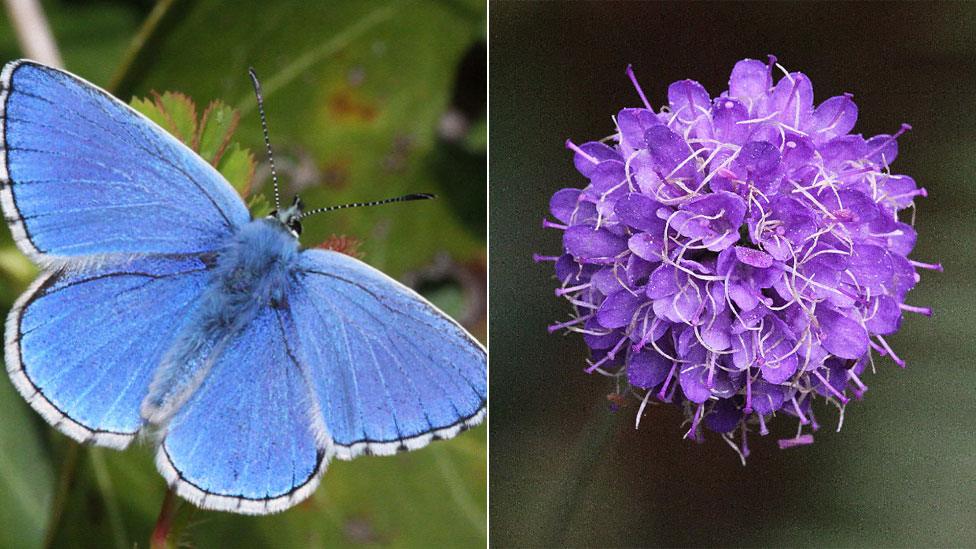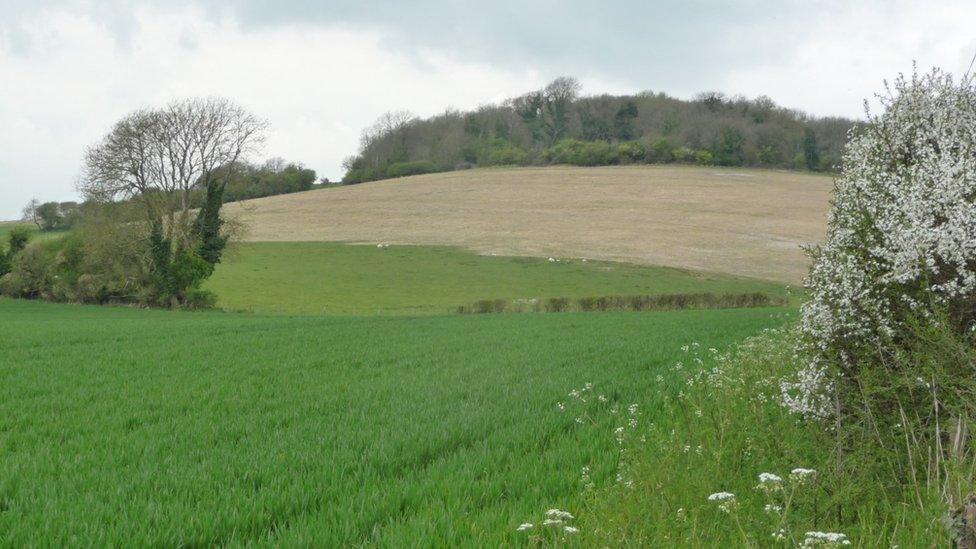Protected Dorset chalk downland 'damaged by herbicide'
- Published

Dorset Wildlife Trust said the area is home to Adonis blue butterflies and plants including devil's-bit scabious
Habitats of threatened species have been destroyed by herbicide sprayed on protected chalk downland in Dorset, conservationists say.
The People Need Nature group said the land at Weatherby Castle, near Milborne St Andrew, had also been cut and burnt.
Dorset Wildlife Trust said the area is home to plants including cowclips and devil's-bit scabious, as well as Adonis blue and orange tip butterflies.
Natural England said it was investigating.

The chalk downland was damaged by herbicide spraying, cutting and burning, Miles King and Natural England said
Miles King, director of People Need Nature, said up to 10 hectares (25 acres) of land had been affected.
"The damage appears to have been done in an effort to make the land more productive for farming, by replacing the chalk downland with agricultural grassland," he said.
"Species of flowers, butterflies and other insects which are now uncommon or even rare in Dorset will be lost."
He added chalk downland areas were "important sites for wildlife and need to be given proper permanent legal protection".
The wildlife trust said common rock-rose, horseshoe vetch, dwarf thistle, pyramidal orchid, bee orchid and holly blue butterflies could be found at the site.
A spokeswoman described them as "notable species - which means they are indicators of good quality habitat".
Natural England said the area was protected under Environmental Impact Assessment (EIA) regulations, external.
"No further operations are planned for the site and we are now looking at ways to work with the landowner on how best to restore the chalk grassland," a spokeswoman added.